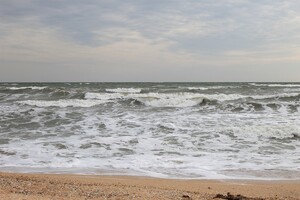The main reason for this is climate change.

Sea level around New Zealand over the last 60 years grew twice as fast as at the beginning of the last century, Stats NZ figures show. Climate change has played a major role in this, The Guardian reports.
Indicators of sea level rise have shown that its rate has doubled between 1961 and 2020 compared to the period 1901-1960s. This is true for three of the four locations where observations were made: Wellington, Lyttelton and Dunedin.
Also read: Global warming: major climate tipping points are near – study
Meanwhile, the capital, Wellington, has seen the most growth in recent years, at 2.84 millimeters per year, while Lyttelton, near Christchurch, has seen the highest overall trend over the past 120 years, at 2.24 millimeters per year.
< p>During the measurements, any local changes in the vertical movement of the earth, which may be caused by geological processes or human activity and cause subsidence, were taken into account.
Scientists have called climate change the main driving force behind sea level rise. Emissions of greenhouse gases heat the Earth's atmosphere, the heat is absorbed by the ocean. The expansion of water in combination with the increase in its volume due to the melting of glaciers leads to a rise in sea level.
Prognoses of further climate change indicate that the sea level will only rise in the future. This will affect coastal communities, infrastructure, biodiversity and animal and plant environments.
New Zealand has a large coastline, with many homes built close to the shore. Every seventh resident (675 thousand people) lives in areas subject to floods, and another 7,062 thousand live in areas that, according to forecasts, will be affected by a sharp rise in sea level.
Related video
Previously, scientists from the University of Novosibirsk of South Wales said that The Southern Ocean absorbs most of the excess heat emitted by the planet. According to the researchers, the warming of this ocean is effectively irreversible on the scale of a human lifetime, as it takes millennia for the heat trapped by the water to be thrown back into the atmosphere.




